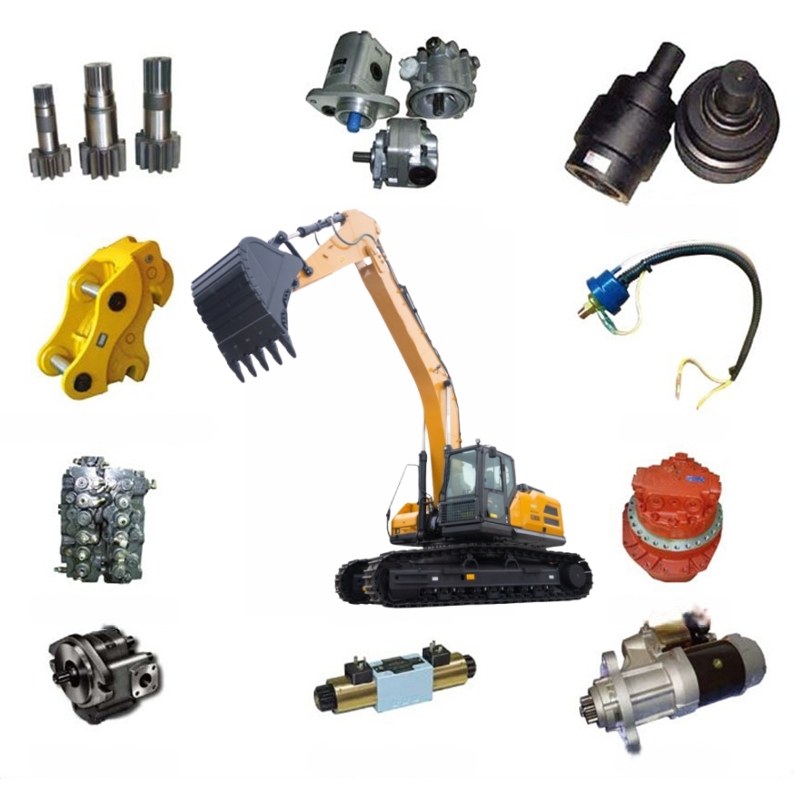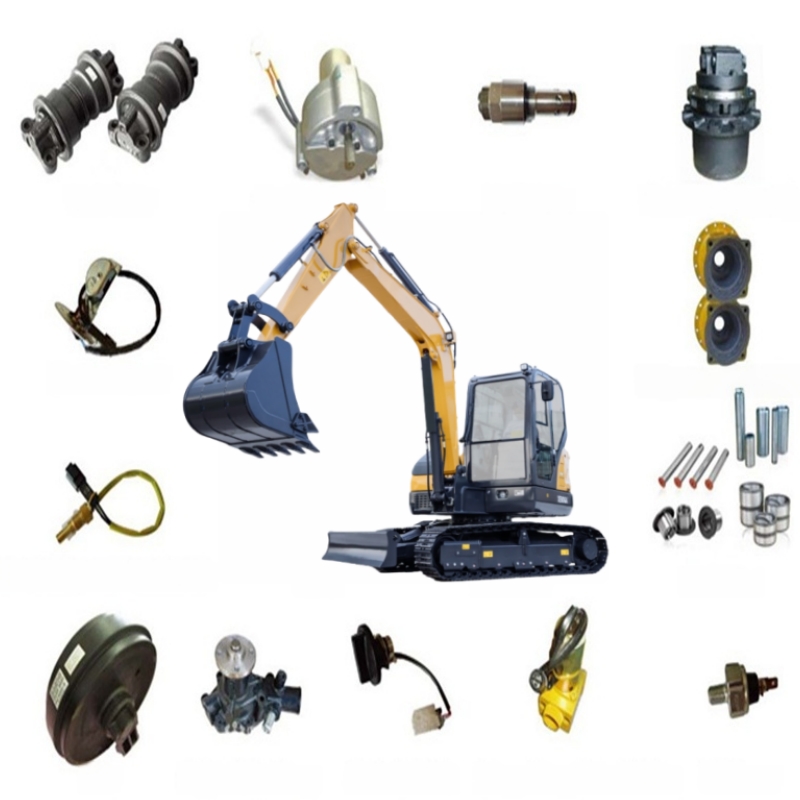Excavators play a vital role in the construction machinery industry, widely used in numerous industries, including construction, mining, and road construction. As a key component in ensuring the proper functioning of excavators, the quality, compatibility, and maintenance of excavator parts are directly related to the excavator’s operating efficiency, service life, and operational safety. This series of articles will delve into various aspects of excavator parts, providing comprehensive knowledge and practical advice.
In the previous article, we analyzed the key points for selecting excavator parts. In this article, we will continue to analyze the care and maintenance of excavator parts and examine the key considerations for maintaining and maintaining excavator parts.
(I) Regular Inspections
Daily Inspections: Operators should perform a simple daily inspection of the excavator before starting work each day. This inspection should include checking for damage or deformation of various components, loose connections, leaks in the hydraulic system, and normal tire (or track) pressure (or tension). Daily inspections can help identify potential problems and enable appropriate measures to prevent minor issues from becoming major failures.
Regular Comprehensive Inspections: In addition to daily inspections, a regular comprehensive inspection schedule should be established based on the excavator’s frequency of use and operating environment. Generally, a comprehensive inspection should be performed every specified number of operating hours (e.g., 200 or 500 hours). This comprehensive inspection covers all aspects of the excavator, including the engine, hydraulic system, working attachment, travel system, and electrical system. Using specialized testing equipment and tools, the performance parameters of each system are tested to assess the wear of components, allowing for the timely identification and replacement of severely worn or failing components.
(II) Proper Use and Operation
Follow Operating Procedures: Operators must strictly follow the excavator’s operating procedures to avoid damage to components caused by improper operation. For example, before starting the engine, ensure that all control levers are in the neutral position to avoid starting the excavator under load. During excavation, adjust the excavation force appropriately based on the hardness and properties of the material to avoid overexcavation that could damage the working attachments, such as the boom, bucket, and other components.
Avoid Overloading: Excavators are designed for a rated load. During actual use, prolonged overloading should be avoided. Overloading can put excessive stress on components like the engine and hydraulic system, accelerating wear and even causing damage. For example, when excavating hard rock, exceeding the excavator’s rated digging force will not only cause severe wear on accessories like the bucket and teeth, but can also damage key components like the hydraulic cylinder and distributor valve.
(III) Maintenance Key Points
Engine Maintenance: Regularly change the engine oil and oil filter to keep the engine clean and well lubricated. Regularly check the air filter and clean or replace the filter element to ensure smooth air intake. Replace the fuel filter at the prescribed intervals to prevent impurities in the fuel from entering the engine. For gasoline engines equipped with spark plugs, regularly check and replace the spark plugs to ensure proper ignition system operation. Hydraulic System Maintenance: Regularly replace the hydraulic oil and hydraulic oil filter to maintain hydraulic oil cleanliness. Inspect the hydraulic system’s pipes, joints, and cylinders to ensure there are no leaks. If leaks are detected, repair or replace the seals promptly. Regularly clean or replace the return and suction filters to prevent impurities from entering the hydraulic system and damaging precision components such as the hydraulic pump and distribution valve.
Travel System Maintenance: Regularly check the track tension and maintain appropriate tension. Too loose a tension can easily cause the track to fall off, while too tight a tension can accelerate wear on the track and track rollers. Clean dirt, sand, and other debris from the track to prevent it from entering between the track and track rollers, which can cause increased wear. Regularly lubricate the track rollers, carrier rollers, and other components with an appropriate amount of grease to extend their service life.
Electrical System Maintenance: Regularly check the electrical system wiring for tight connections, damage, or signs of aging. Repair or replace any problems promptly. Keep batteries clean and regularly check the electrolyte level. If the level is low, add distilled water immediately. Regularly test and calibrate the electrical system’s controllers, sensors, and other components to ensure proper operation.
Excavator parts are an essential component of the excavator. Their quality, selection, and maintenance are directly related to the excavator’s performance, lifespan, and safety. When selecting parts, focus on compatibility, quality, and cost-effectiveness. During use, ensure thorough maintenance, regular inspections, and proper operation. Only in this way can you ensure your excavator is always in good working condition and can complete various tasks efficiently and safely.
This is the final article in this series. I hope you find it helpful. If you need to purchase excavator spare parts, please contact us directly. We will provide you with high-quality and affordable excavator spare parts!
You can also visit some of our websites:
Click here to visit our spare parts web
Click here to visit our alibaba (There are more kinds of products)
Post time: Aug-20-2025


